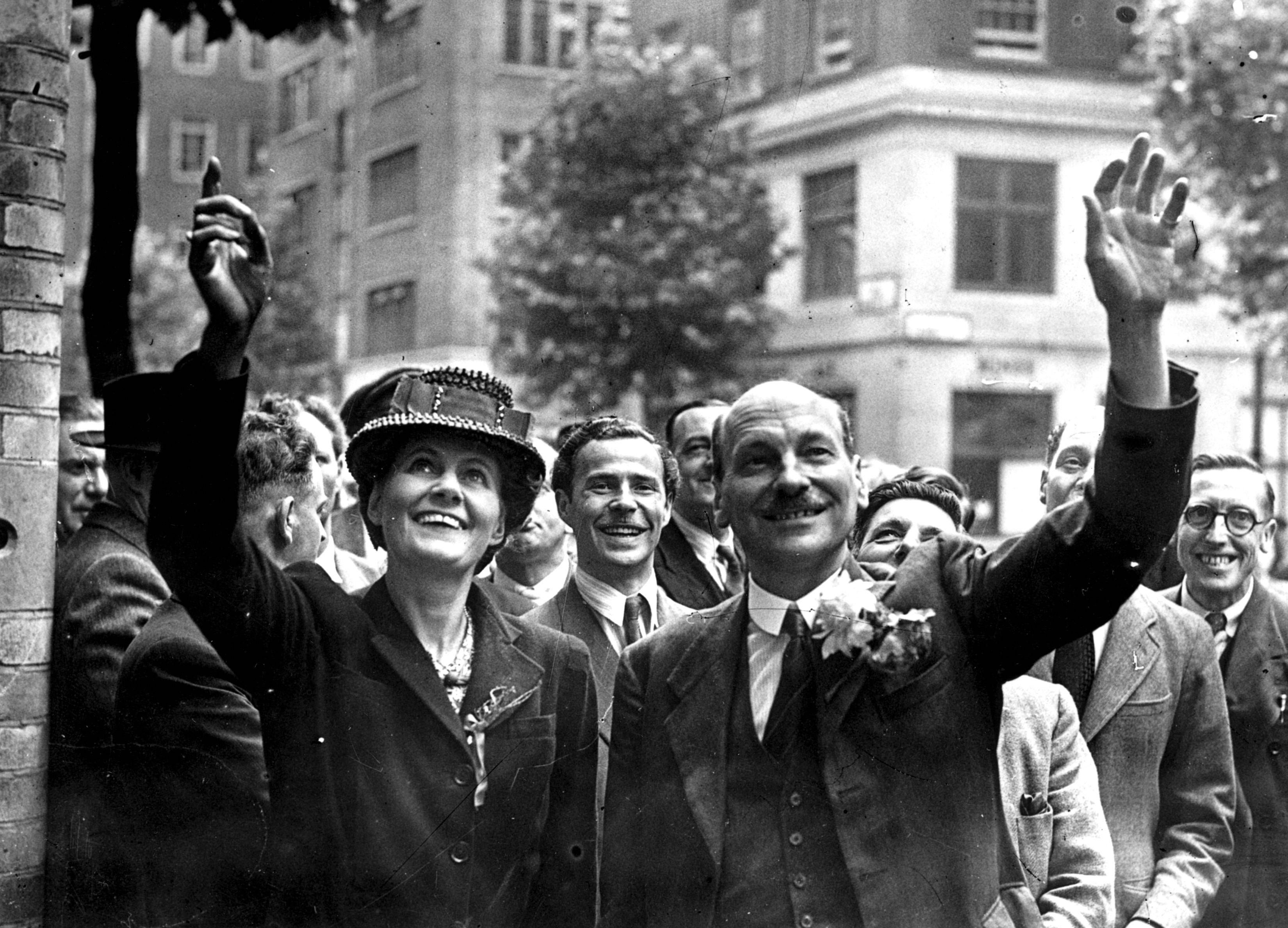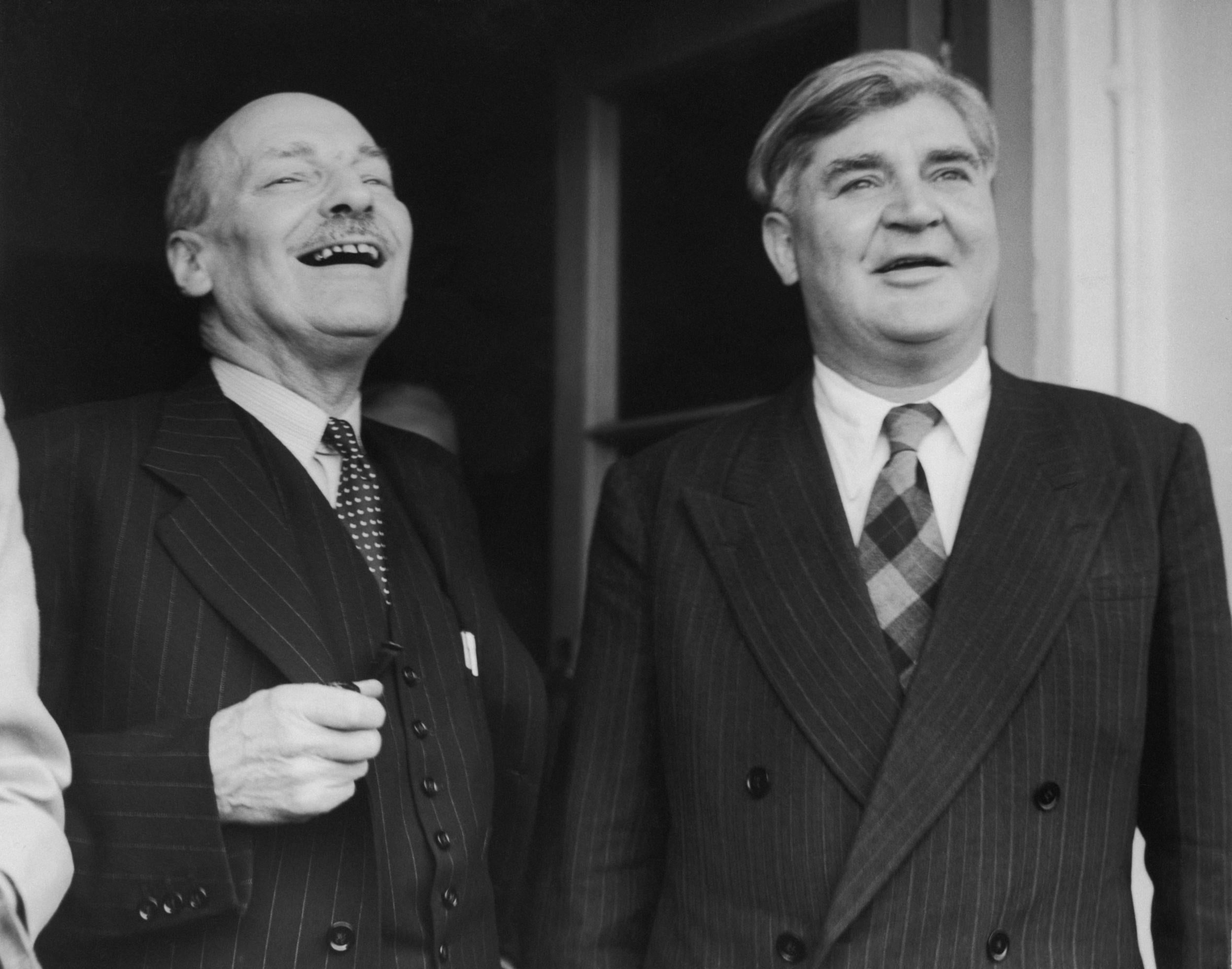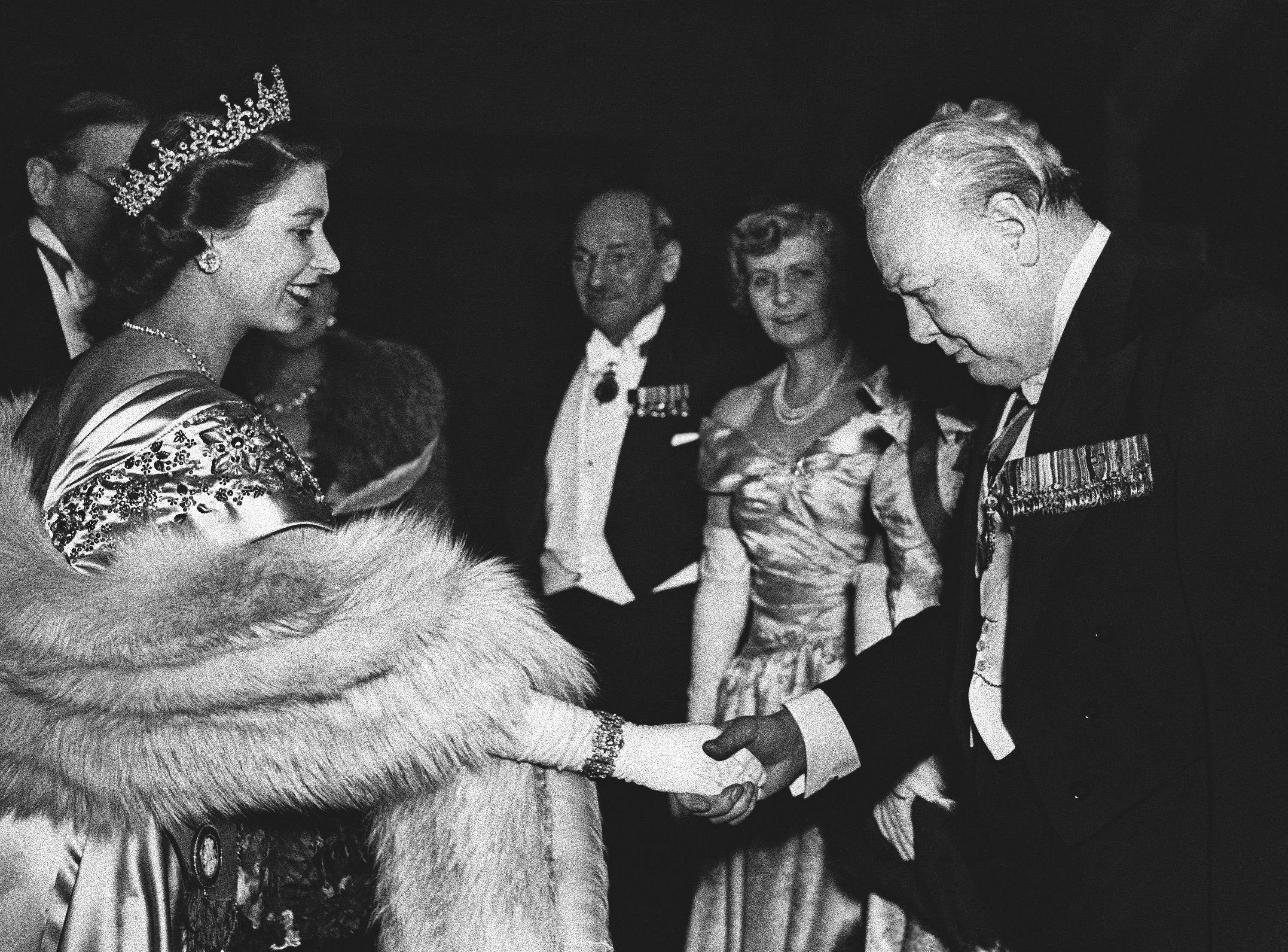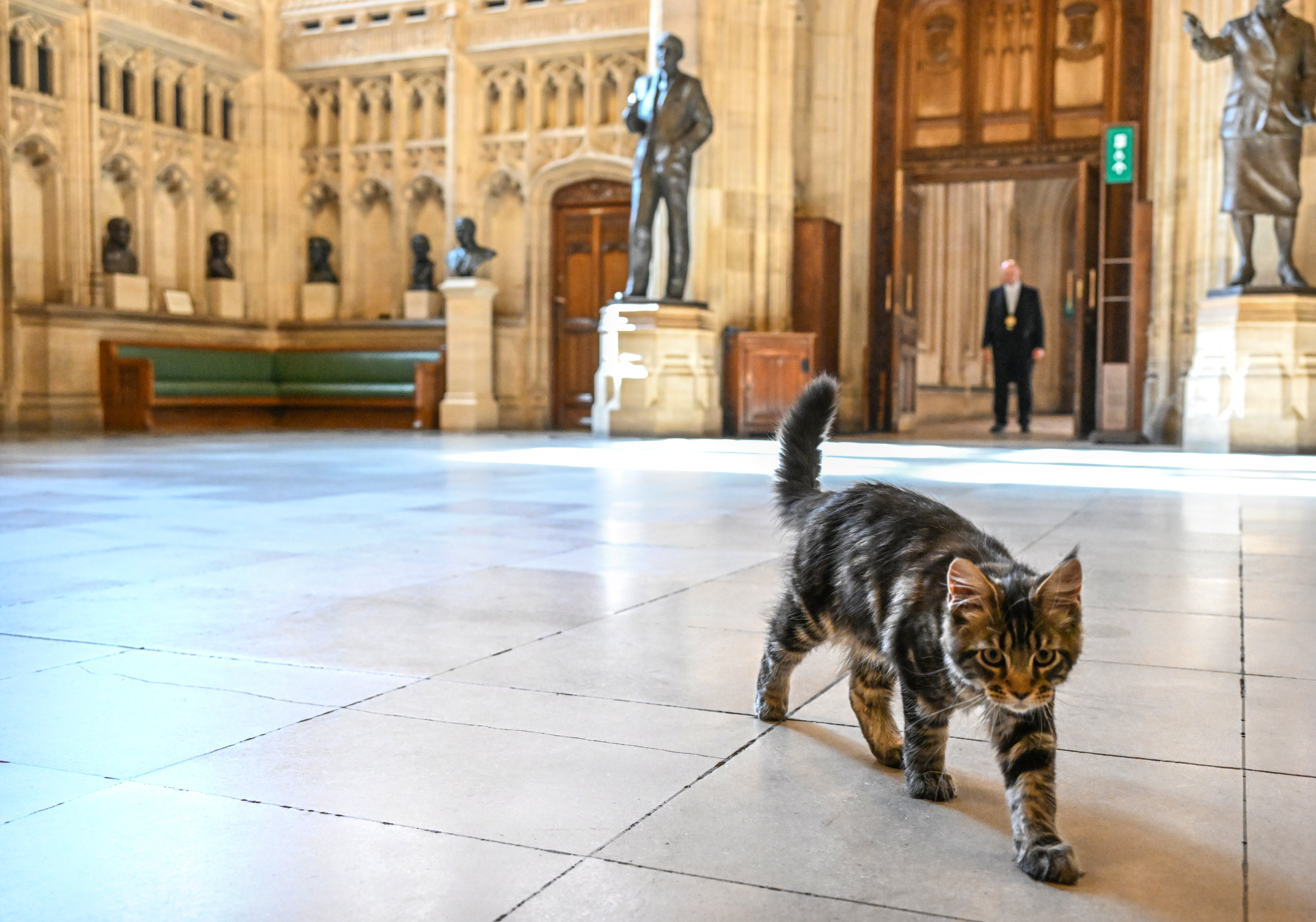In a political age devoid of decency and talent, the lessons we can learn from Clement Attlee
In his Attlee Foundation lecture delivered at Queen Mary University of London, Jon Davis explores the ambiguous reputation of Britain’s first post-war prime minister and pays tribute to his own mentor, historian Peter Hennessy


I am the first in my family to stay on for A-levels, let alone anything else. I do not remember the idea of going to university being a part of my upbringing until A-level teachers started to mention it – something I thought might happen one day, but far into the future. After an unhappy stint in banking, I chose Queen Mary, which is where Clement Attlee’s election count was held in 1945; it was the night he became the first majority Labour prime minister. I chose Queen Mary for its reputation, for its proximity to our home at the end of the District line in Upminster, and for its East End location.
My great stroke of professional fortune came in my final undergraduate year, when I was accepted into the class “Cabinet, Premiership and the Conduct of British Central Government since 1945” by Professor Peter, now Lord, Hennessy.
I revelled in Peter’s teaching: his analysis, his anecdotes, but most of all his passion. And none more so than for Attlee. I had heard of the Labour leader mostly in the context of Winston Churchill’s stunning and oh-so-complicated landslide defeat in 1945; what a way for the British people to repay the greatest war leader this country had ever known. Outside of this, Attlee was never really spoken about. Not at home – a very lively debating forum, I can tell you; not at school; not even, really, for the first two years of a history and politics degree in the East End. Peter’s teaching was a revelation.
Peter’s advocacy for Attlee – “The Major”, as he often called him – was awesome. I once said to Peter that Whitehall – his monumental history of the British civil service – was more of a romance than a history. In book after book, Peter mined the Attlee archive, and contrasted his findings with what he saw as the collapse in leadership and standards of the 1980s, 1990s and 2000s – analysis that now seems quaint in light of the Boris Johnson and Liz Truss premierships.
For the first time, I learned about this giant, Clement Attlee: a man born into the supremely comfortable upper middle class over in west London – a background, according to Professor Sir Vernon Bogdanor, more affluent than Churchill’s – who was all set to follow his father into the higher legal establishment, but after visiting his old fee-paying school – Haileybury’s outreach “settlement” in Ben Jonson Road, in Stepney, reputed at the time to be the roughest and least law-abiding borough in London – gave up all his comfort to devote years to living and working here.
He was shocked, deeply impressed, and radicalised by the plight, but also the pride, energy and friendliness of the East Enders. He became in effect a social worker, moved to Limehouse, and threw off the learning and the lens of his privileged upbringing. He felt that it was his duty – noblesse oblige – to sign up for the First World War, though he was over age, and was badly ill and injured at Gallipoli, in Mesopotamia, and on the Western Front.
Attlee loved his East End. He was MP for Limehouse for 28 years, and for Walthamstow West for five more. And the East End loved him. Re-reading Kenneth Harris’s 1980s authorised biography, one marvels not only at Attlee’s courage in overcoming immense shyness, but at how often his determination to help his area and his people crops up.

He never evolved into a gifted orator – something that Peter Hennessy joyously contrasted against what he often felt were modern “identikit” politicians mindlessly parroting whatever “the line” was. The key to understanding Attlee the man was his unblinking determination to right the wrongs of extreme inequality, and to deliver a level of social justice never seen before. This was his unrelenting drive – and boy, did he deliver.
He was a first-rate chair of meetings, especially of cabinet. He once took Churchill to task with the cutting line: “A monologue is not a decision.” His quiet yet iron-fisted management of near-irreconcilable giants – Ernest Bevin, Hugh Dalton, Herbert Morrison, Sir Stafford Cripps, Hugh Gaitskell and Harold Wilson – was to lead to one of the historic reshapings of Britain. The long-dreamed-for National Health Service and a comprehensive welfare system, along with the nationalisation of a third of the British economy – and the beginning of the end of the empire, with Indian independence – were all fulfilled.
But Hennessy’s championing of Attlee in the 1980s was initially swimming against the tide. The ebb and sometimes flow of a prime minister’s reputation is a complicated, inexact science, and Attlee’s comeback was not a given.
In poll after poll of academics, Attlee is now thought of as first among the pantheon of premiers since the war. How did this happen? Hennessy’s advocacy was significant. His work came at a time when the old world of governing, with many of its consensual ways reflecting the experience of mass unemployment and wartime sacrifice, had been turned upside down by the Thatcher revolution. John Bew underpinned and extended the Attlee reputation in 2016 with his award-winning, big-selling and highly readable Citizen Clem, which caught a modern zeitgeist of a country ill at ease with itself and increasingly lacking the community spirit Attlee so personified.

But – I now tread carefully before such an audience, mindful that not just my own family members are in attendance, but also members of the Attlee family – I went to see Professor Hennessy a few days ago. I wanted to check a memory of an anecdote he had told me. “I’m pretty sure it was the last time I saw Roy Jenkins,” Peter told me (Roy died in January 2003). “He was crossing Russell Square and I was coming out of Senate House. ‘What’s your next book?’ I asked him. ‘I may return to Attlee,’ said Roy. ‘You may recall that I wrote a small biography of him. You and I are responsible for raising him just a little too high on the plinth.’”
I’ve always thought that was a fascinating exchange. First, because Jenkins’s 1948 biography of Attlee was based upon the author and his subject having known each other since Jenkins was a child, as his dad, the miners’ MP Arthur Jenkins, had been parliamentary private secretary to the Labour leader. Second, because I’m an admirer of Roy, and his biography of Churchill is one of my favourite history books ever. And third, because I think he’s probably right. One can overdo, and hero worship does not help us get to the truth.
One of those rare voices who never went along with the Attlee worship was the late Professor George Jones of the London School of Economics. He had stood for Labour in 1964, and had written a biography of Herbert Morrison. Jones thought Morrison should have been prime minister instead. He once went, not exactly head-to-head with Hennessy, but as a competitive adviser to an undergraduate debate here at Queen Mary, jousting over the relative virtues of the post-war prime ministers. Before I repeat his advice to his team, remember this was a debating contest, trying to paint the worst possible picture in order to score points:

“Attlee is overrated. He had no vision and did not inspire – a mouse; an empty taxi drew up at 10 Downing Street and Mr Attlee got out; a modest man with much to be modest about. He had no strong views on politics except perhaps about India. He was a disaster in foreign affairs. His giving up and withdrawing from Palestine and India, bequeathing to the world the terrible problems of Israel and the Palestinians, and of Kashmir, bedevilling relations between India and Pakistan, and leaving us a benighted Bangladesh.
“Domestically he left the UK burdened with a legacy that took a generation to be repaired by Thatcher – an economy that hated enterprise and innovation, dominated by protectionist employers, farmers and trade unions, who sucked the energy out of workers and consumers; a welfare state that encouraged dependency of its citizens on handouts; and a health service based on Stalinist principles.
“He operated and perpetuated a system of cabinet government that meant policies were produced only after complex time-wasting processes that squeezed all involved into the lowest common denominator. He wasted his majority, kept the British people in poverty, and failed to release their dynamism. A petty-minded limited prime minister, concerned to win honours for himself, and incapable of leadership.” Wow.
In 2011, after the statue of Attlee was relocated from outside Limehouse library to its magnificent setting here before the university library, I was asked to put on a bit of a show for its unveiling. I thought Peter Mandelson would be perfect: a great speaker, always box office, no longer in power so easier to get – and pertinently, the grandson of Morrison.
Peter lived up to my hopes – you can see the video on our website. He began by saying what “a delicious irony” it was being asked to unveil the statue. After the lecture, Professor Jones asked me, “Whose idea was this?” I said I had asked Professor Hennessy to write to Lord Mandelson suggesting that he might like to “bury the hatchet” after all these years. George smiled. “He absolutely should have buried the hatchet – in the statue of Clement Attlee!” True story. Deep waters.
If you knew George, you would know that these lines were delivered in a bluff, pseudo-aggressive manner that hid a heart of gold. But a bit of balance will help us get closer to the reality. Which is that Clement Attlee was undoubtedly one of the greatest prime ministers of our country. The “case for the prosecution” I’ve just read is simply the flip side of a long life well lived. His record in achieving so much, which those with little had needed for so long, finally, is quite enough to cement his place at the very top of the pantheon. He was decisiveness personified in his pursuit of results. But to decide is to choose, and to choose is to disappoint, and he did that for many in the decades after his fall.

All prime ministers since the Second World War have left office suffering unpopularity. Attlee was no exception, being booted out of No 10 after losing narrowly to Churchill in the 1951 general election, then beaten more comprehensively by Sir Anthony Eden in 1955. Attlee’s reputation fell, there being little immediate thanks in politics for a very hard job well done.
But what I would like to chew on for a moment is why some reputations resurge but others stay in the doldrums. Who here thinks that Liz Truss will be remembered even a little more fondly than she is right now? Eden certainly is not, after his shameful activities over the Suez crisis. On the other hand, post-war premiers such as James Callaghan and John Major have enjoyed a revival. As have the two giants of the past 40 years, Margaret Thatcher and Tony Blair.
I think Thatcher is only going to rise in stature, especially after Charles Moore’s masterly authorised biographies, and even in spite of Truss’s bizarre cosplay. As for Blair, the years since the Brexit referendum have powerfully underlined that there was more to New Labour than Iraq.
More problematically, I do wonder how Boris Johnson’s legacy will fare over the coming years and decades – he did, after all, build an electoral coalition that few could comprehend, and won a sizeable majority of 80. (By the by, I do not judge 80 seats a landslide – I reserve that term for a three-figure shift.)
The last prime minister I will discuss here is Sir Winston Churchill, who was voted the greatest Briton of all time in a BBC poll in 2002. I wonder if he would be if it were run again. For the modern world’s move towards the removal of context, and the simplistic and sometimes ignorant judging of yesterday’s figures by today’s values, does mean that I do not think I am Nostradamus to predict a rough ride for Churchill’s reputation in the coming years. As the thoughtful Tory peer and Times columnist Danny Finkelstein wrote in 2019, “Even though the wartime prime minister was a lifelong white supremacist, his strengths far outweigh his weaknesses.” This is not easy to comprehend for the 2D world of social media.
Attlee’s return to grace proves, I think, that in an age where we question whether decency, and indeed actual delivery, matters, Attlee’s ascendancy is all the more important. He, I hope, sets our sights higher just as we emerge from several years of plumbing the depths.
Talking to Peter Hennessy the other day, he had fun telling me that I was in some ways the complete opposite of Attlee – “Twice the size, loud, and like being around people!” The more I’ve learnt about Clement Attlee, the more I’ve come to respect his record and cherish his character. His care and attention to the people of the East End in particular needs to be remembered and celebrated. As ever, the last word goes to Peter: “Given the quality of prime ministers in recent memory, perhaps we need to raise Attlee’s reputation even higher.”
Professor Jon Davis, director of the Strand Group at King’s College London, delivered the Attlee Foundation lecture at Queen Mary University of London last week. This is an edited extract
Join our commenting forum
Join thought-provoking conversations, follow other Independent readers and see their replies
Comments
Bookmark popover
Removed from bookmarks